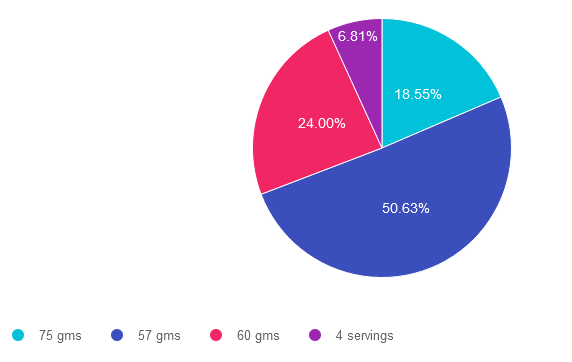
For last week’s practice question, we quizzed participants on post-meal glucose spikes. 51% of respondents chose the best answer. We want to clarify and share this important information, so you can pass it on to people living with diabetes and your colleagues, plus prepare for exam success!
Before we start though, if you don’t want any spoilers and haven’t tried the question yet, you can answer it below: Answer Question
Question: TR can’t figure out why her BG always spikes after breakfast.
How many grams of carb is in the following breakfast? 2 corn tortillas, 2 fried eggs with salsa, ½ cup hashbrowns and an 8 ounce glass of milk.
Answer Choices:
- 75 gms
- 57 gms
- 60 gms
- 4 servings

Getting to the Best Answer
If you are thinking about taking the certification exam, this practice test question will set you up for success. Test writers anticipate possible answers based on the details in the question. They will wave those “juicy answers” right under your nose. Your job is to weed through the particulars, pluck out the most important elements and choose the BEST answer.
Answer 1 is incorrect. 18.55% chose this answer, “75 gms”. To answer this question accurately, it is important to be familiar with the common servings sizes of carbs and to know which foods don’t count as carbs. This answer is incorrect because it is an over estimate of carbs in this meal.
Answer 2 is correct. 50.63% of you chose this answer, “57 gms”. Yes, this is the BEST Answer. GREAT JOB. Here are the carbs broken down. 2 corn tortillas = 30gms carb, 2 fried eggs with salsa= 0 gms carb, ½ cup hashbrowns – 15 gms and an 8 ounce glass of milk =12gms. 30 + 15+ 12 = 57 gms of carbohydrate in this meal. An important fact to keep in mind for exam success; a cup of milk is 12 gms of carb, not 15gms.
Answer 3 is incorrect. About 24% of respondents chose this, “60 gms” This was the juicy answer. An important fact to keep in mind for exam success; a cup of milk is 12 gms of carb, not 15gms. Here are the carbs broken down. 2 corn tortillas = 30gms carb, 2 fried eggs with salsa= 0 gms carb, ½ cup hashbrowns – 15 gms and an 8 ounce glass of milk =12gms. 30 + 15+ 12 = 57 gms of carbohydrate in this meal.
Finally, Answer 4 is incorrect. 6.81% chose this answer, “4 servings” This answer is tempting, but the question asks “how many gms of carbohydrate” not, how many servings of carb. A great idea is to always eliminate answers that don’t match the unit of measure used in the question.
If you want more info on carb counting, you are invited to join our Virtual Conference in April. Save $100 through April 7, 2023 (see info below). We hope you appreciate this week’s rationale!
Want to learn more about Medical Nutrition Therapy?
You are invited to join our Virtual Conference with our Nutrition expert speaker, Ashley LaBrier, MS, RD, CDCES, who will be providing a half-day presentation on this important topic!

Ashley LaBrier, MS, RD, CDES, is an innovator in the field of diabetes, nutrition, and technology. Ashley is a consultant and the Diabetes Education Program Coordinator at the Salinas Valley Medical Clinic’s Diabetes & Endocrine Center.
Ms. LaBrier is passionate about providing person-centered education to empower those who live with diabetes. Having been diagnosed with type 1 diabetes herself nearly 20 years ago, she combines her professional knowledge with personal experience and understanding.
Virtual DiabetesEd Training Conference
Whether you are new to diabetes or a seasoned expert, you’ll benefit from this virtual conference with the latest research plus critical content that you can immediately apply to your clinical practice.
If you are seeking a state-of-the-art review of current diabetes care, this course is for you. Our team has been fine-tuning this course for over fifteen years, and we know what you need. This program can also be a great addition to your CDCES or BC-ADM exam study plan.
Group discounts are available!*
Download Course Flyer | Download Schedule
All hours earned count toward your CDCES Accreditation Information
Sign up for Diabetes Blog Bytes – we post one daily Blog Byte from Monday to Friday. And of course, Tuesday is our Question of the Week. It’s Informative and FREE! Sign up below!
The use of DES products does not guarantee the successful passage of the CDCES exam. CBDCE does not endorse any preparatory or review materials for the CDCES exam, except for those published by CBDCE.









